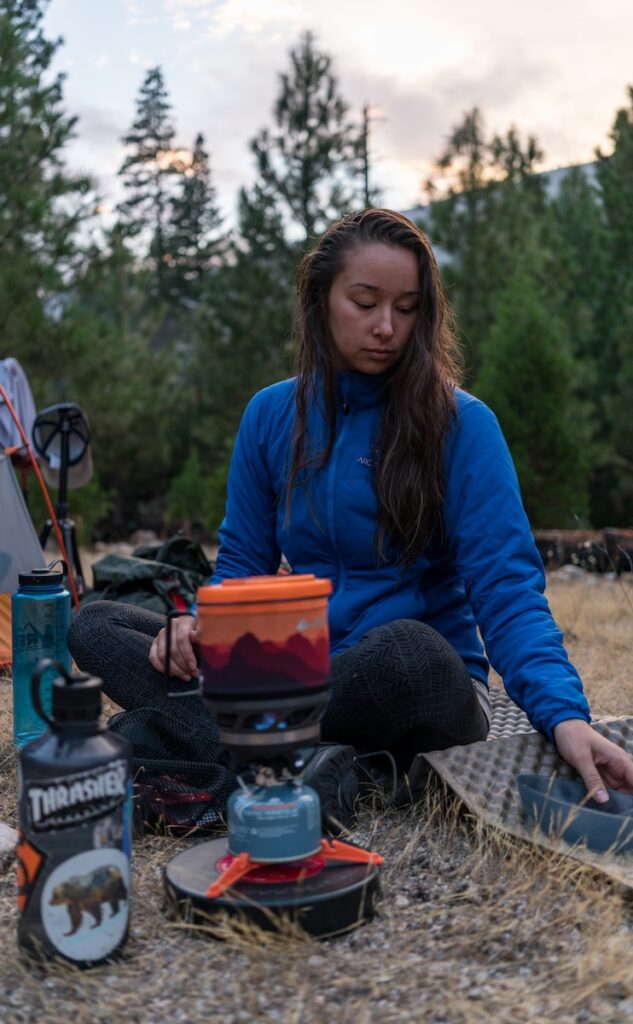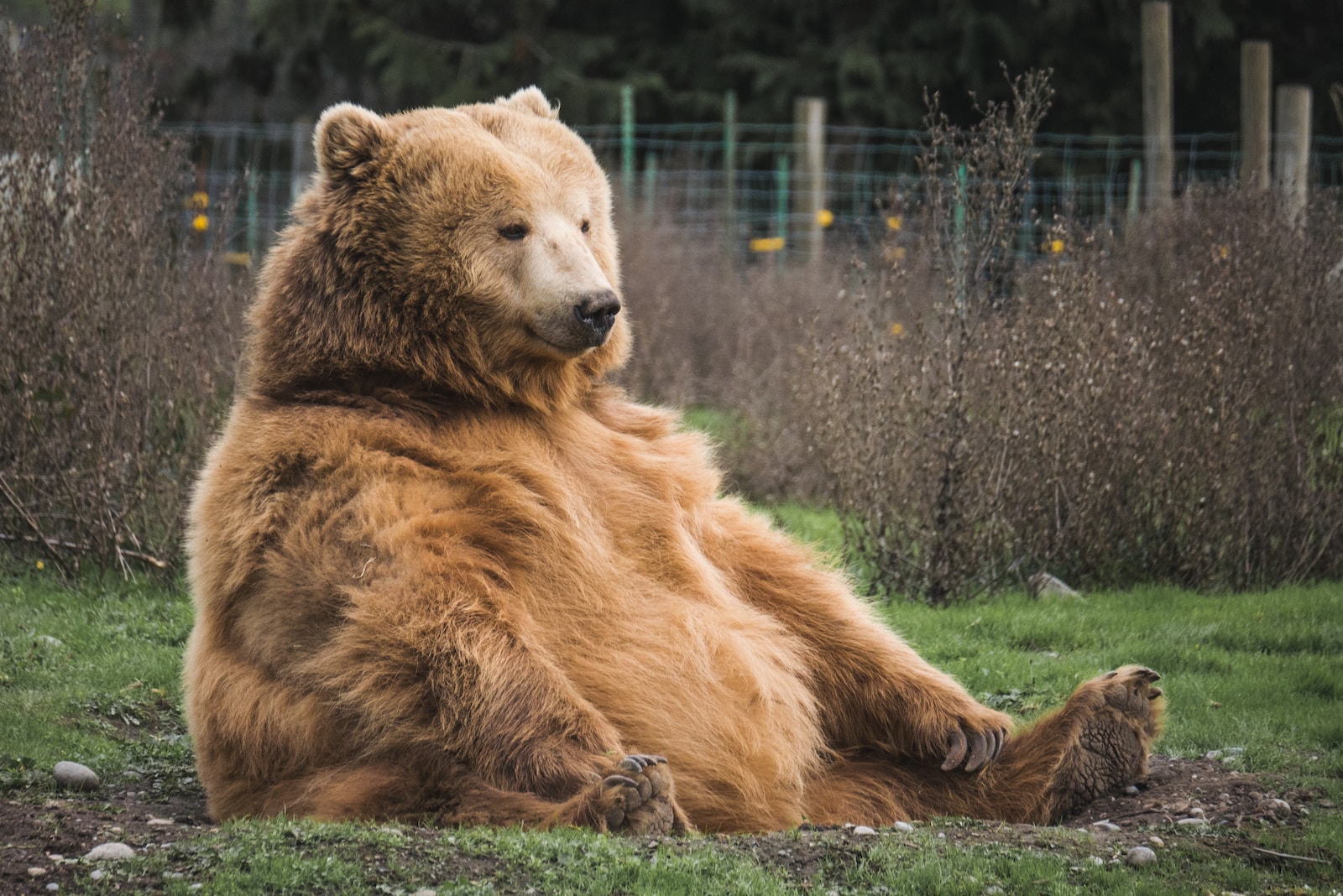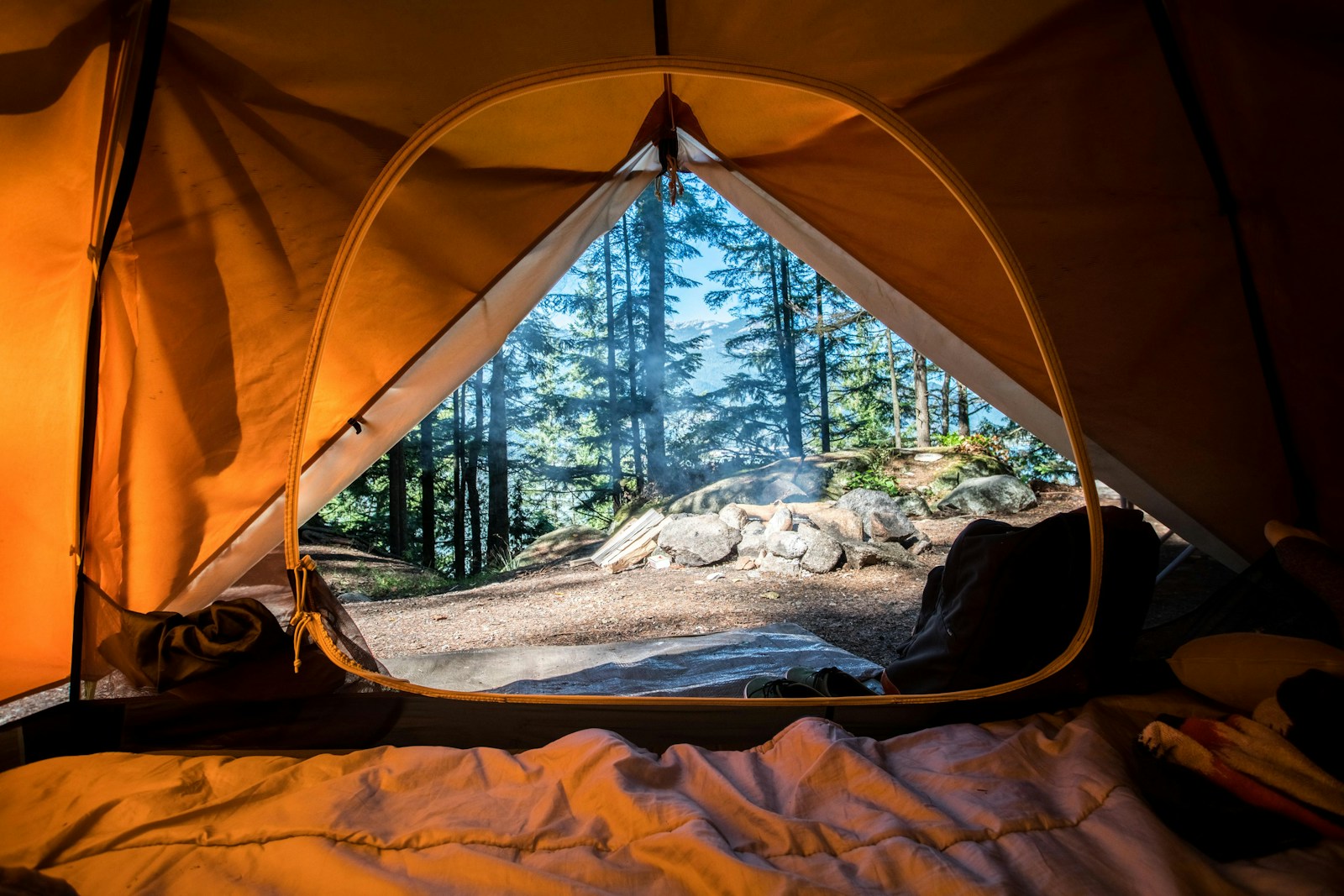Planning a camping trip in bear country can be an exciting adventure, but it’s important to be prepared and informed. As you plan your trip, there are a few key things you should know that will help ensure the safety of both you and the bears. In this article, we will discuss the necessary precautions to take, such as storing food properly, disposing of waste responsibly, and understanding bear behavior. By the end of this article, you’ll feel confident in your ability to have a safe and enjoyable camping experience in bear country.

When camping in bear country, it’s crucial to store food properly to avoid attracting bears to your campsite. Bears have a strong sense of smell and can be enticed by the scent of food from miles away. Therefore, it’s essential to use bear-resistant containers or hang your food from a tree at least 10 feet off the ground and 4 feet away from the trunk. Additionally, be sure to cook and eat away from your sleeping area to minimize the chances of encountering a bear at night. This will help prevent any unwanted encounters and keep both you and the bears safe. Remember, by following these guidelines, you’ll greatly reduce the risk of attracting bears to your campsite and decrease the likelihood of any dangerous situations occurring.
Understanding Bears Patterns For Camping In Bear Country
Patterns of bear activity
When camping in bear country, it is essential to understand the patterns of bear activity. Bears are typically more active during certain times of the year, such as spring when they come out of hibernation, and in the fall when they are in search of food to prepare for the winter. Being aware of these patterns can help you anticipate their behavior and take necessary precautions to avoid encounters.
Identifying signs of bear presence
Being able to identify signs of bear presence is crucial for your safety. Look out for paw prints, scat, claw marks on trees, and broken branches. Bears also leave behind a strong, musky odor. If you come across any of these signs, it is an indication that bears are in the area, and you should take extra precautions.
Knowing when bears are most active
Bears are generally more active during dawn and dusk, so it’s important to be particularly cautious during these times. They have a keen sense of smell and hearing, which makes them difficult to surprise. It’s best to plan your activities accordingly and be extra vigilant during the times when bears are most likely to be active.
Choosing the Right Campsite
Selecting a location away from bear habitats
When setting up your campsite, it is crucial to choose a location that is away from bear habitats. Look for areas that are open and have good visibility, so you can see if any wild animals, including bears, are approaching. Avoid camping near streams or food sources that may attract bears.
Considering bear-safe food storage options
Proper food storage is essential in bear country. Invest in bear-resistant food containers or use bear lockers provided at campsites. These containers are designed to prevent bears from accessing your food and other scented items. Hanging food from a tree is not recommended, as bears can still potentially reach it.
Avoiding areas with potential attractants
When selecting a campsite, avoid areas that have potential bear attractants, such as berry patches or dead animal carcasses. These are places where bears are likely to congregate, and camping nearby increases the risk of encounters. Choose a location that is clean and free of any potential food sources for bears.

Preparing Your Campsite
Cleaning the campsite thoroughly
Before setting up camp, make sure to clean the area thoroughly. Bears have an excellent sense of smell, and any leftover food scraps or odors can attract them to your campsite. Ensure that all food preparation areas, cooking utensils, and dishes are properly cleaned and stored away.
Properly disposing of food waste
Food waste should never be left scattered around your campsite. Bears have a strong sense of smell and can be attracted to even the smallest food scraps. Make sure to properly dispose of food waste by sealing it in airtight bags and storing it in bear-resistant containers or designated bear-safe garbage bins.
Securing garbage and odorous items
Along with food waste, any items with strong odors, such as toiletries and scented lotions, should be stored in bear-resistant containers. These items can attract bears, and it is essential to keep them secured and away from your sleeping areas.
Essential Camping Gear
Bear-resistant containers for food storage
Investing in bear-resistant containers is a crucial step in camping in bear country. These containers are designed to withstand bear attempts to open them and protect your food and scented items. Make sure to choose containers that have been verified by the Interagency Grizzly Bear Committee (IGBC).
Bear deterrent options
In addition to bear-resistant containers, it is wise to have bear deterrent options on hand. Bear spray is a highly effective tool for deterring aggressive bears. It is important to familiarize yourself with how to use bear spray properly and have it easily accessible in case of an encounter.
Emergency communication devices
When camping in bear country, it is vital to have reliable communication devices in case of emergencies. This can include a satellite phone, a personal locator beacon (PLB), or a two-way radio. These devices can help you contact emergency services or seek assistance if needed.
Proper Food Handling
Choosing bear-resistant food containers
When camping in bear country, it is crucial to store all food and scented items in bear-resistant containers. These containers are designed to prevent bears from accessing your food and reduce the chances of encounters. Properly seal all containers to eliminate any potential odors.
Storing food away from sleeping areas
To further minimize the risk of bear encounters, store your food away from your sleeping areas. Bears have an incredible sense of smell and can be attracted even by the faintest food odors. Store your food in a bear-resistant container and place it at least 100 yards away from your sleeping area.
Cooking and eating away from the tent
When cooking and eating in bear country, it is best to do so away from your tent. Food odors can linger and attract bears to your campsite. Set up a designated cooking area at a safe distance from your sleeping area and clean up thoroughly afterward to minimize any potential odors.
Campfire Safety
Following local regulations and guidelines
When camping in bear country, it is important to follow all local regulations and guidelines regarding campfires. Some areas may have restrictions on open fires, while others may require you to use designated fire pits. Adhering to these rules helps reduce the risk of wildfires and potential bear encounters.
Keeping a safe distance from bear habitats
When building a campfire, it is crucial to keep a safe distance from bear habitats. Avoid setting up your campfire near areas where bears are likely to frequent, such as berry patches or game trails. By maintaining a safe distance, you reduce the chances of attracting bears to your campsite.
Properly extinguishing the campfire
Before leaving your campsite or going to sleep, make sure to properly extinguish your campfire. Pour water over the fire until it is completely out, and then stir the ashes to ensure there are no remaining hot spots. Carefully check the area surrounding the fire pit to ensure no embers are left smoldering.
Avoiding Bear Encounters
Making noise to alert bears of your presence
To avoid surprising bears, it is important to make noise as you hike or move around your campsite. Bears have excellent hearing, and by making noise, you announce your presence and give them a chance to move away peacefully. Clap your hands, sing, or talk loudly to alert bears of your presence.
Traveling in groups for added safety
When hiking or exploring in bear country, it is always safer to travel in groups. Bears are less likely to approach a larger group of people, and you can collectively make more noise to avoid surprising them. Stay close together and keep a watchful eye on your surroundings.
Using bear pepper spray if necessary
If you find yourself in a close encounter with a bear, bear pepper spray can be an effective tool for deterring them. It is essential to carry bear spray with you and know how to use it properly. Aim for the bear’s face and spray in short bursts to create a cloud between you and the bear.
Reacting to Bear Encounters
Remaining calm and not running
If you encounter a bear, it is crucial to remain calm and avoid running. Bears are naturally curious and may follow you if you try to flee. Stay in place and assess the situation, giving the bear a chance to calm down or move away on its own.
Backing away slowly and avoiding direct eye contact
As you slowly back away from the bear, avoid making direct eye contact, as this may be seen as a threat. Maintain a steady pace and create distance between yourself and the bear. Do not turn your back on the bear until you are at a safe distance.
Speaking calmly to the bear and giving it space
While backing away, speak to the bear in a calm and reassuring voice. Let the bear know that you are not a threat by talking softly and avoiding sudden movements. Give the bear ample space to move away peacefully.
Handling Food in Bear Country
Properly storing all food and scented items
Properly storing all food and scented items is crucial when camping in bear country. Use bear-resistant containers or designated bear lockers to store your food. Make sure to keep all scented items, such as toiletries and lotions, secured and away from your sleeping areas.
Practicing good hygiene to avoid attracting bears
Maintaining good hygiene habits can help minimize the risk of attracting bears to your campsite. Wash your hands thoroughly after handling food, and avoid using scented soaps or lotions that might attract bears. Keeping a clean campsite is essential in bear country.
Cleaning cooking utensils thoroughly
After cooking and eating, it is important to clean your cooking utensils thoroughly. Bears have an exceptional sense of smell and can be attracted to even the smallest food residues left on utensils. Wash them with hot water and soap, ensuring there are no lingering food odors.
Conclusion
Staying informed on bear behavior and taking necessary precautions are crucial to ensure a safe camping experience in bear country. By understanding patterns of bear activity, selecting the right campsite, properly preparing your campsite, and handling food and campfires safely, you can minimize the risk of bear encounters. Respecting bear habitats not only benefits humans but also helps preserve the natural balance and well-being of wildlife. Camping in bear country can be an exciting and rewarding experience, as long as you are well-prepared and mindful of your surroundings.




Leave a Reply